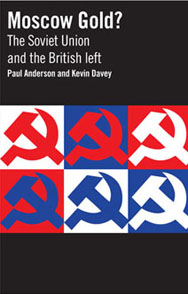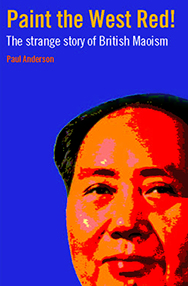Description
Moscow Gold? The Soviet Union and the British left by Paul Anderson and Kevin Davey is a popular history of the myriad relationships between British socialists and the Kremlin.
It tells the story from the rise of the Bolsheviks in Russia in 1917 right through to the collapse of the Soviet Union in 1991 – with a final chapter on the various groups and individuals still active on the British left who draw their inspiration and practice from Leninism. It is a clear narrative account incorporating a wide range of research published since the end of the cold war – an ideal primer for anyone coming to the subject for the first time, but also nuanced, thorough and up-to-date, incorporating the latest findings from the archives. Written from an explicitly libertarian socialist perspective, the book is highly critical of attempts by the right-wing media to tar the whole of the British left with the pro-Soviet brush but pulls no punches in identifying Soviet meddling in British politics.
FROM THE INTRODUCTION
It is a quarter-century since the fall of the Berlin Wall, and the Soviet Union has not existed since 1991. No one under the age of 40 has more than childhood memories of communist rule in what was once the Soviet bloc. So why bother about the Soviet Union and the British left now? The main reason is that it is a fascinating story in itself. But it also matters today. It is impossible to understand the left in Britain now unless you get to grips with the historical left’s myriad relationships with Bolshevism from the overthrow of the Tsar in March 1917 to the dissolution of the Soviet Union in December 1991.
For three-quarters of a century, the different strands of the left in Britain (as elsewhere in the world) defined themselves to an extraordinary extent by reference to the Bolsheviks and the regime they established. And many of the battle lines drawn then still survive, albeit much modified…
This pamphlet is not an attempt to tell the story of the global impact of the Russian revolution. It is focused specifically on Britain. It is not an academic monograph, and it is not primarily a history of the Communist Party of Great Britain. It is a popular overview, BBC History-style, an attempt to tell the big story of the relationship of the whole British left to the Soviet Union since 1917, dealing as much with the non-communist left and critics of the Soviet Union as with the CPGB or the fellow-travellers.
WHAT THEY SAY …
‘Moscow Gold? The Soviet Union and the British left by Paul Anderson and Kevin Davey is a fine little book you can read in a day. Anderson and Davey have taken advantage of the vast amount of research into communism since the end of the Cold War. They wear it lightly, and refreshingly, are open about their political position. As members of the democratic left, they believe that communism was a disaster for left wing politics. It tied the left to tyranny and the lies and disillusion that went with it. Leaving everything else aside, the far left burnt out activists. For generations, idealistic men and women joined the Communist Party, Militant and the SWP, and left disgusted, not just with Leninism, but with politics of any kind.’
NICK COHEN
‘Moscow Gold? The Soviet Union and the British left by Paul Anderson and Kevin Davey charts the ill-fated story of the Communist Party of Great Britain, which existed from 1920 to 1991, and what happened to its personnel and politics… The ‘Moscow Gold’ of its title refers to the now incontrovertible fact that until the end of the CPGB, Soviet authorities massively underwrote and subsidised the whole adventure to the extent that it tarnished and brought into question every campaign and position the party took. Anderson and Davey are two knowledgeable writers of the left, its fractures and many evasions, but what makes this account valuable is its story of the CPGB’s changing fortunes.’
GERRY HASSAN
Moscow Gold? The Soviet Union and the British left by Paul Anderson and Kevin Davey
ISBN: 978-0-9573635-7-1 second edition



